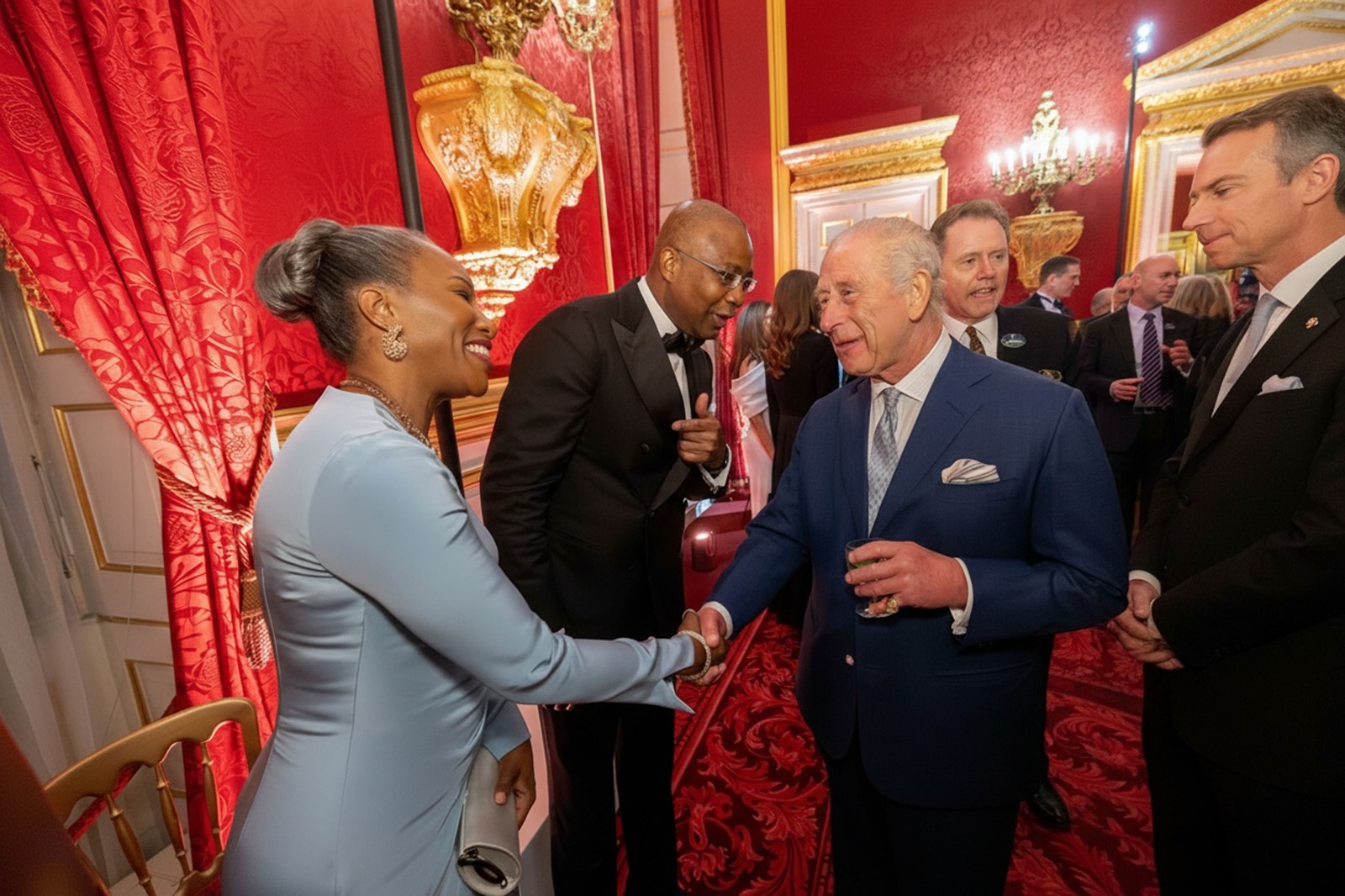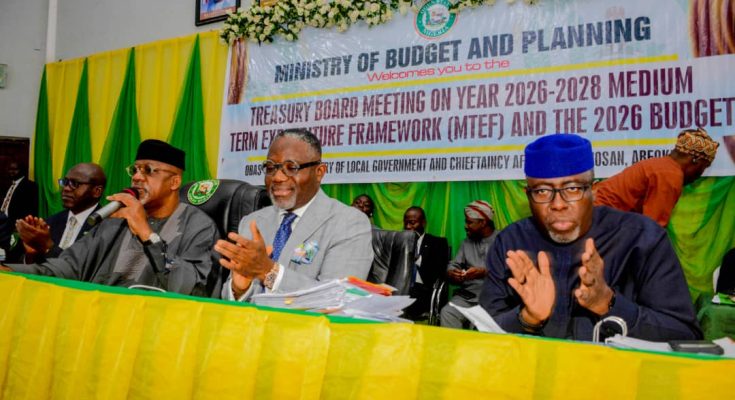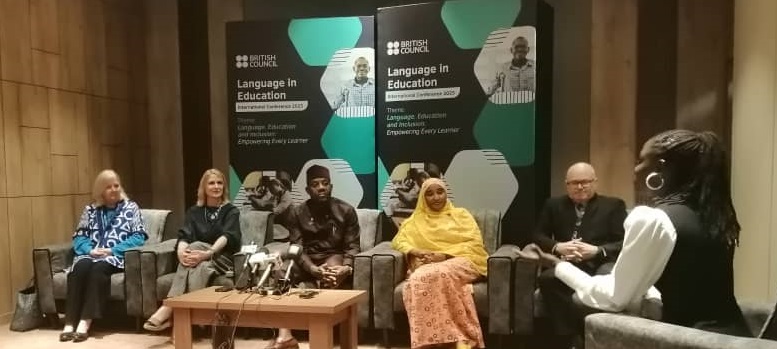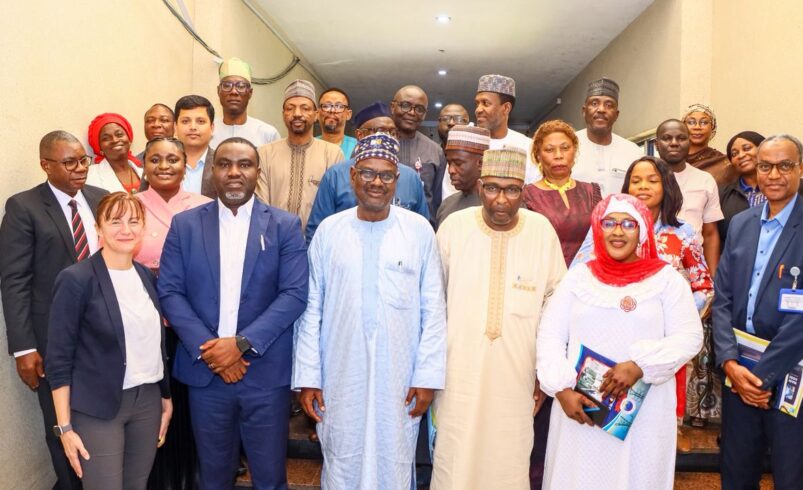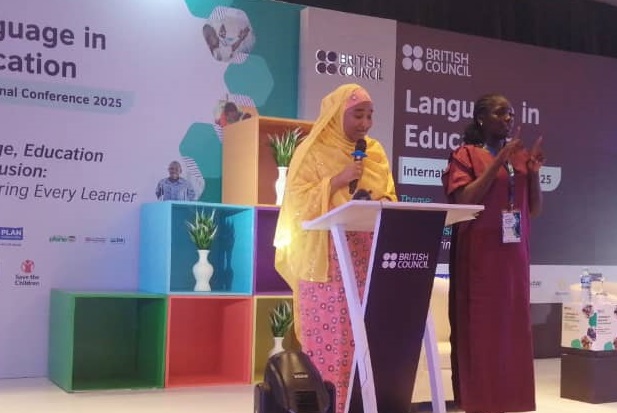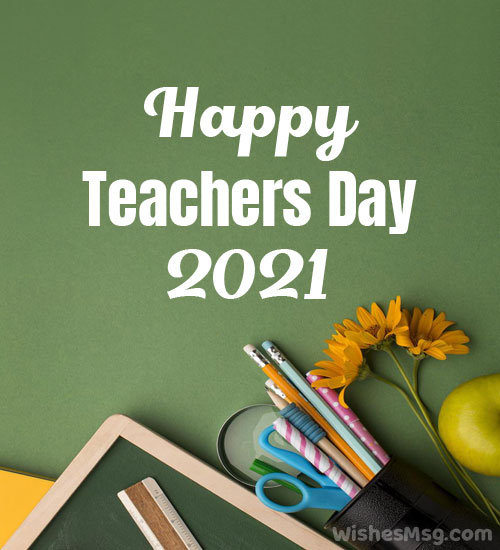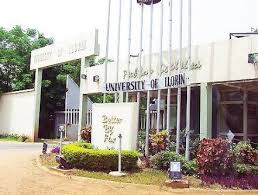By: Goodluck E. Adubazi Abuja
The Federal Government has announced a comprehensive review of Nigeria’s language-in-education policy, following evidence that the use of mother tongue as the medium of instruction in early education has not yielded the expected improvement in learning outcomes.
Speaking at the British Council International Conference on Language in Education 2025 with the theme “Language, Education and Inclusion: Empowering Every Learner,” held at the Abuja Continental Hotel from November 12–13, the Minister of Education, Dr. Tunji Alausa, said government has resolved to “go back to the drawing board” to ensure that every Nigerian child receives quality education comparable to global standards.
Alausa, who spoke alongside the Minister of State for Education, Professor Suwaiba Mohammed, noted that while teaching in local languages was theoretically beneficial at the foundational level, its practical application across Nigeria’s diverse linguistic landscape had been fraught with challenges.
“For over 15 years, we tested the use of mother tongue as the language of instruction in early education. However, the evidence has shown that it has not achieved the intended goals,” Dr. Alausa said.
“Children are graduating from Junior and Senior Secondary School without mastering basic literacy and numeracy. We must face the reality and take a data-driven approach to fix this.”
The minister explained that while global research supports early education in learners’ first languages, Nigeria’s complex multilingual context—with hundreds of languages spoken across its regions—has made uniform implementation difficult.
“In Lagos, you have a mix of Yoruba, Igbo and other languages. In Borno, Hausa predominates. In many schools, teachers and pupils don’t even share a common language,” he said.
“We must therefore review the policy to determine what language best serves our learners and how to ensure inclusivity across all zones.”
Dr. Alausa lauded the British Council for its long-standing partnership with Nigeria in improving education quality, describing the conference as a “timely platform” for reflection and policy realignment.
“The British Council has remained a loyal partner, working with us to enhance teacher training, digital learning and policy reform,” he added. “This conference helps us share real-life experiences and evidence to decide the future of language in education across Sub-Saharan Africa.”
Further stress holistic Reform in Education,
On her part, the Minister of State for Education, Professor Suwaiba Mohammed, said the government’s intervention goes beyond language policy, encompassing a holistic overhaul of the education system.
She revealed that the ministry is implementing a nationwide digital teacher training programme to enhance classroom delivery and teacher morale.
“We discovered that some teachers are in school but not in class; some are in class but not teaching. The new digital training package focuses on pedagogy, values, gamification, and classroom engagement,” she said.
“We are also developing a special training module for foundational teachers — those handling pre-primary to primary three — to strengthen literacy and numeracy skills.”
According to her, about 25 million Nigerian children currently lack basic literacy skills, underscoring the urgency of the reforms.
British Council, UNICEF, and Partners Pledge Support
In her remarks, Dr. Donna Mchowan, Country Director of the British Council in Nigeria, reaffirmed the Council’s commitment to supporting Nigeria’s education transformation agenda.
“It is a privilege for the British Council to host this international conference in Nigeria, a country rich in linguistic diversity. We are not policymakers; our role is to provide technical support and expertise to help the Federal Ministry of Education achieve its goals,” McGowan said.
She emphasized that the conference provided a platform for sharing experiences from countries such as Uganda, Kenya, Ghana, Tanzania and Zimbabwe, offering Nigeria valuable lessons in implementing language-responsive education.
Julian Parry, Director of English and School Education, Sub-Saharan Africa, and Vanessa Lee, Chief of Education, UNICEF Nigeria, also pledged continued collaboration with the Nigerian government to align education interventions with national priorities.
“Our collective goal is to ensure that every Nigerian child receives a quality education that meets international standards,” Vanessa Lee stated. “We are aligning donor support and technical assistance with the Federal Ministry of Education’s strategic framework.”
The Road Ahead,
As discussions continue at the two-day conference, stakeholders expressed optimism that Nigeria’s renewed evidence-based approach will set the foundation for a more inclusive, efficient, and globally competitive education system.
Dr. Alausa concluded,
“With over 140 million young Nigerians below the age of 18, we cannot afford to get this wrong. The language of instruction is not a political issue — it is the foundation of learning. We must all get it right.”



